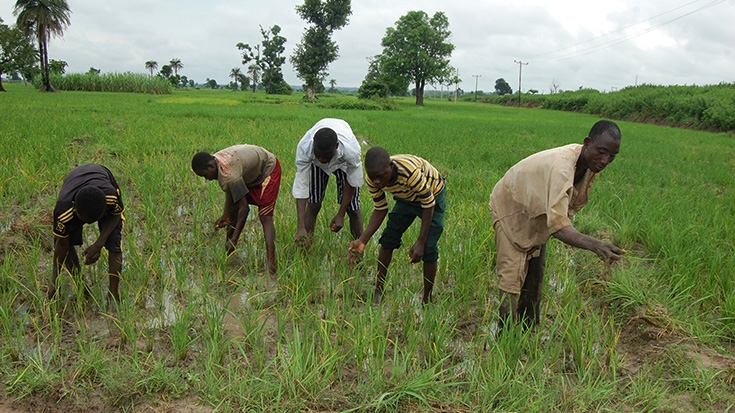There are no products in your shopping cart.
| 0 Items | £0.00 |


NIGER Delta Development Commission (NDDC) officials have entered into partnership with the Rice Farmers Association of Nigeria (Rifan) in a bid to combat any possibility of food shortages in the country by expanding the growth of lowland rice.
Of late, Nigeria has been reeling from the effects of unprecedented inflation, which have hit basic foodstuff prices hard. According to the National Bureau of Statistics, food inflation increased to 35.42% in January this year as the removal of petrol subsidies has pushed up transportation costs and subsequently retail prices.
Rice is one of Nigeria's main staples that has been badly affected by the crisis, with its price rising beyond the reach of most Nigerians. Over the last decade, Nigeria has expanded rice production significantly increasing output to 5.8m tonnes a year but it is all upland rice grown in the north of the country.
Globally, most of the world's largest rice producers such as India, China, Indonesia, Bangladesh, Thailand, Vietnam, Burma, the Philippines, Cambodia, and Pakistan, produce their crops in riverine areas. Vietnam’s Mekong Delta for instance produces 20m tonnes of rice a year but in contrast the Niger Delta grows hardly any rice.
To address the problem, the NDDC has entered into this new partnership with Rifan according to its spokesman Pius Ughakpoteni. He added that the NDDC managing director Dr Samuel Ogbuku, met with Rifan's deputy national president, Victor Korede, in Port Harcourt, the Rivers State capital to come up with a masterplan.
Mr Ughakpoteni said: “With the new drive in NDDC, we are ready to go into partnership with Rifan. We have two rice mills in Elele-Alimi, Rivers State and Mbiabet-Ikpe in Akwa Ibom State and we are interested in the smart agriculture approach of the farmers’ association.
“The Niger Delta region, due to the arable wetlands, rainfalls and other ecological factors in its favour, provides the window to plant rice at least, twice within a farming season. Therefore, it is incumbent on us to engage the rice farmers meaningfully as they have shown a strong desire to grow more rice.
“We are trying to move away from the oil economy and the sector which can accommodate our youths in large numbers is the agricultural sector. We also want to move from subsistent agriculture to mechanised farming to harness all the opportunities that the Niger Delta region has to offer.”
Emmanuel Anoh, Rifan's south-south vice president, said the association was set to demonstrate that local production of food in sufficient quantity is possible in the country. Nigeria's Niger Delta covers 70,000 km2 and produces hardly any rice, compared with Vietnam's Mekong Delta, which covers an area of just 40,577 km² and generates about $3.15bn in rice export revenue a year.
He explained: “We are here to discuss partnership with the NDDC on how best the region can feed Nigeria and contribute to the president’s agenda of self-sufficiency in food production. Rice is a global staple crop eaten by every home at least, thrice a week.”